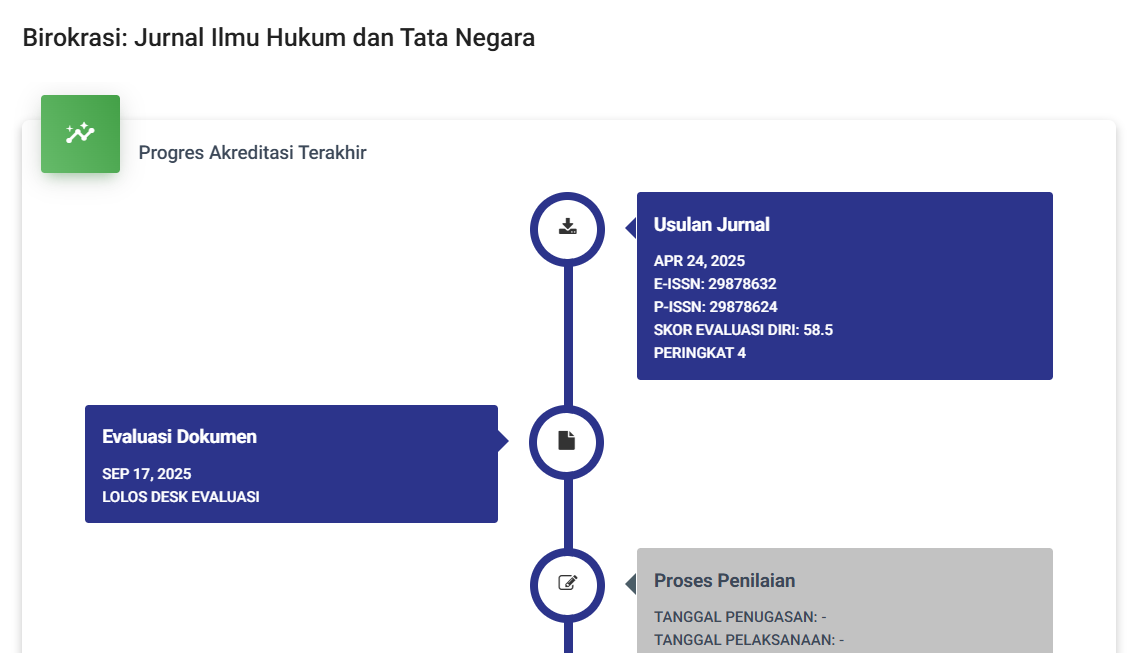Apakah Pengaturan Pasal Penghinaan Presiden Mengancam Kebebasan Berpendapat
DOI:
https://doi.org/10.55606/birokrasi.v2i2.1158Keywords:
Freedom of Opinion, Criminal Law, Criminal Code, President and Vice PresidentAbstract
Law is a guide for people in living their lives so that they are directed and avoid negative behavior. Freedom of expression, including criticism of the government, is often considered an insulting act that can result in legal action. This research aims to determine the limits of the criminal provisions for insulting the President and Vice President in the reform of criminal law (Law number 1 of 2023 concerning the Criminal Code) in Indonesia as well as analyze the provisions regarding insulting the President and Vice President who have the potential to threaten press freedom. The method used in this research is normative law, namely examining aspects of legal policy through studying the documents of Law number 1 of 2023 concerning the Criminal Code. The results of this research show that criminal law regulations regarding insulting authorities and state/government institutions, especially the President and Vice President, have developed over time. Constitutional Court (MK) decisions have an important role in establishing clear boundaries regarding expression and criticism of authorities and state/government institutions. Criticism of the performance of executive agencies can be a means of increasing government transparency and accountability. However, regulations governing insults against authorities and state/government institutions must pay attention to democratic principles and human rights.
References
Artikel Jurnal
Prayogo, W. A. S. (2020). Tinjauan Kebijakan Pidana Terhadap Martabat Presiden Dan/Atau Wakil Presiden Dalam RKUHP. Pandecta Research Law Journal, 15(2), 207-217.
Pradityo, R. (2018). Menuju Pembaharuan Hukum Pidana Indonesia: Suatu Tinjauan Singkat. Jurnal Legislasi Indonesia, 14(2), 137-143.
Fauzin,“Keberpihakan Pengaturan Hak Atas Informasi Publik Dalam Undang Undang Keterbukaan Informasi Publik.” Pranata Hukum Vol. 6 No.2 (Juli 2011). Hlm.161-170.
Mario Julyano danAditya YuliSulistyawan, “Pemahaman Terhadap Asas Kepastian Hukum Melalui Konstruksi Penalaran Positivisme Hukum. ”Jurnal Crepido Vol.1 No.1 (Juli 2019). Hlm. 13-22.
Muntoha. “Demokrasi dan Negara Hukum,” Jurnal Hukum 3(Juli 2009). Hlm. 388 dan 389.
Reza, Muhammad,et.al.. “Criminal Legal Policy and Unconstitutionality On Contempt OfRuler Or Public Body”. Jurnal Hukum dan Peradilan Vol.9 No. 1 (2020). Hlm. 82-83.
Disertasi/Tesis/Paper Kerja
Belair, A. R. (2003). Shopping for Your Self: When Marketing becomes a Social Problem. Dissertation. Concordia University, Montreal, Quebec, Canada.
Lindawati (2015). Analisis Faktor yang Mempengaruhi Perilaku Ekonomi dan Kesejahteraan Rumah Tangga Petani Usahatani Terpadu Padi-Sapi di Provinsi Jawa Barat. Institut Pertanian Bogor. Retrieved from http://repository.ipb.ac.id/ handle/123456789/85350.
Buku Teks
Chazawi, A. (2009 ). Hukum Pidana Positif Peghinaan. Surabaya: ITS Pers.
Lamintang. (1997). Dasar-dasar Hukum Pidana Indonesia. Bandung: PT. Citra Aditya Bakri.
Ghoffar, A. (2009). Perbandingan Kekuasaan Presiden Indonesia Setelah Perubahan UUD 1945 dengan Delapan Negara Maju. Jakarta : Kencana.
Achmadi, T. (1985). Sistem Pers Indonesia. Jakarta: Gunung Agung
Manan, B. (2016). Pers, Hukum, dan Hak Asasi Manusia. Jakarta: Dewan Pers
Sumber dari internet dengan nama penulis
Hanz Jimenez Salim. (2014). Arsyad si Penghina Jokowi Dibebaskan dari Tahanan. Tersedia pada https://www.liputan6.com/news/read/2128172/arsyad-si-penghina-jokowi-dibebaskan-dari-tahanan. Diakses pada tanggal 4 Oktober 2023 pukul 00.32 WIB.








